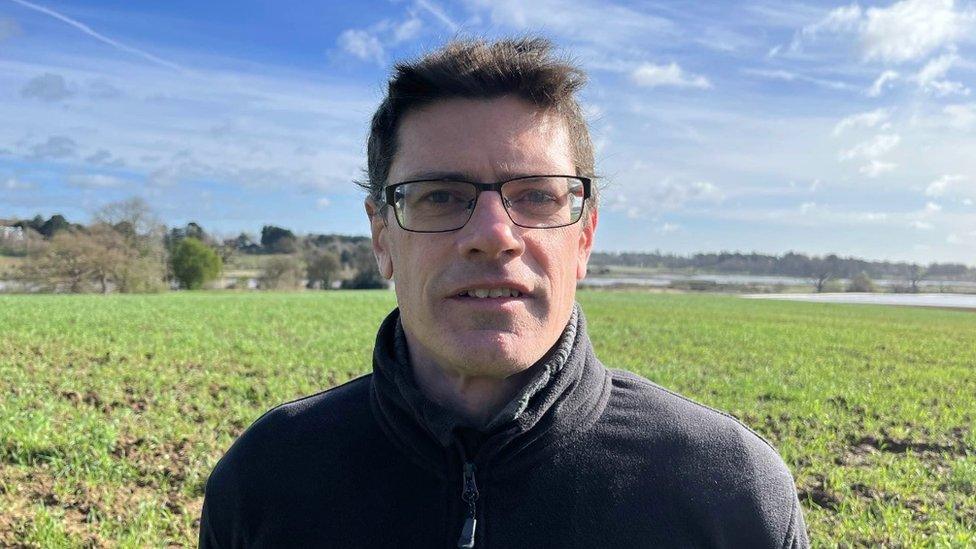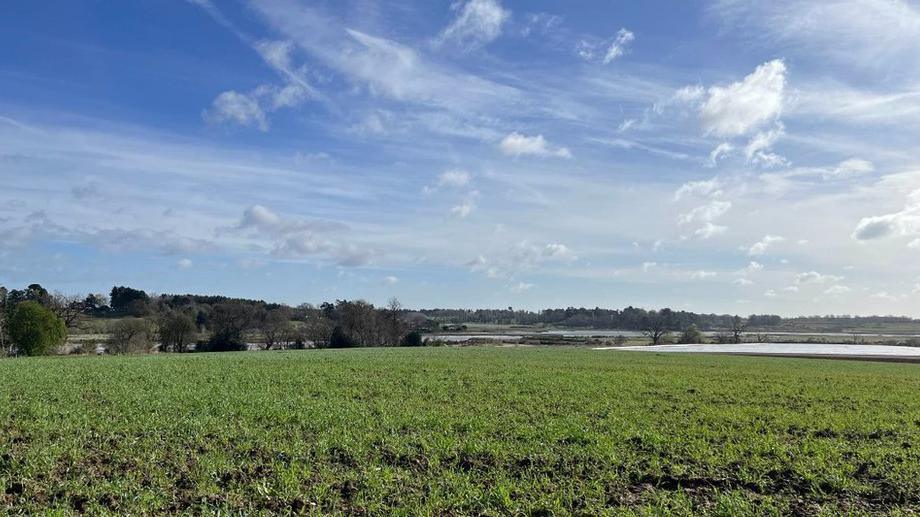New nature reserve to be created by rewilding farm

Suffolk Wildlife Trust's director of wildlife Ben McFarland hopes the new habitats will lead to an increase in "significantly declining" lapwing and redshank populations
- Published
At a glance
A 289 acre (116 hectare) farm is to be transformed into a new nature reserve for Suffolk
It is on the banks of the River Deben, an "internationally important wetland site"
The site will be left fallow and it is hoped shrubs will self-seed, creating a habitat for wildlife as diverse as slow worms and turtle doves
More than 2,000 people have contributed more than £500,000 towards the £1m needed to transform the arable land
Farming will cease at a 289-acre (116 hectare) organic arable farm this autumn in the first step to creating a new nature reserve.
Suffolk Wildlife Trust hopes to transform the site alongside the banks of the "internationally important wetland site" at the River Deben at Martlesham, near Ipswich.
Ben McFarland, the trust's director of wildlife, conservation and recovery, said the "wilding project" will "let nature take the lead".
The charity has raised more than half the £1m it needs to create the Martlesham Wild reserve.

All farming will cease later this year and the site at Martlesham will be left to become a nature reserve for this "most densely populated part of Suffolk"
Projects receive grants to highlight nature
- Published5 August 2022
Cranes fledge young in a first for county's coast
- Published29 November 2022
Haven for rare species celebrates its 75th year
- Published25 April 2022
Mr McFarland said: "We think that by stepping back and letting nature take the lead we can really ecologically uplift the areas to create an incredible habitat over time."
He said similar trust wilding schemes took between five and 10 years to deliver change for nature.
"We're expecting hawthorne, blackthorne and wild rose to come in here," he said.
The trust hopes the change will "drive biodiversity", encouraging rare birds, small mammals, reptiles and insects.
"We're also right on the edge of the Deben internationally important wetland site and we've got some grassland that can wet up to be really good for waders like the avocet - and potentially we're beginning to look at creating a new salt marsh long the river," he said.
He added that while "agriculture in Suffolk is really important", less than 2% of the the county was put towards nature.
"We believe there also needs to be spaces specifically for nature," he added.
The Banister Charitable Trust and more than 2,000 people have helped raise more than £500,000 towards the £1m needed to create the new reserve.
Find BBC News: East of England on Facebook, external, Instagram, external and Twitter, external. If you have a story for us, email eastofenglandnews@bbc.co.uk, external